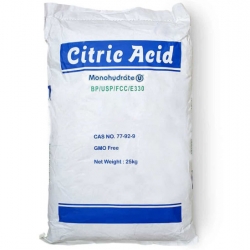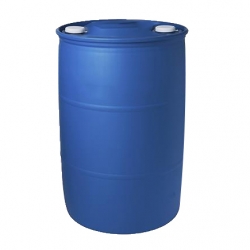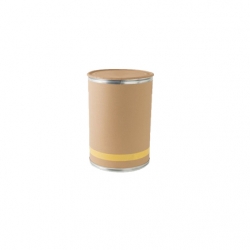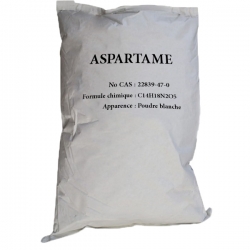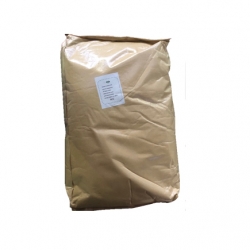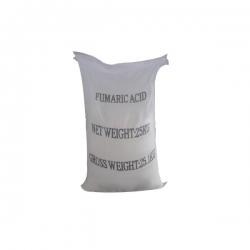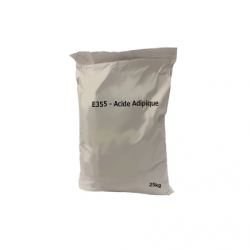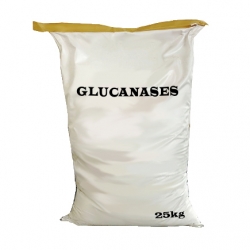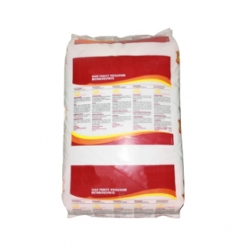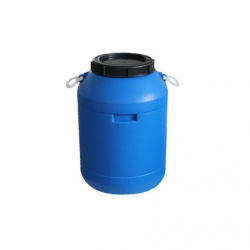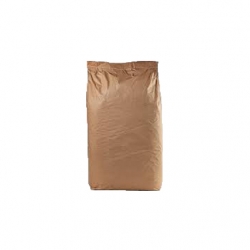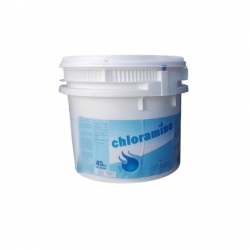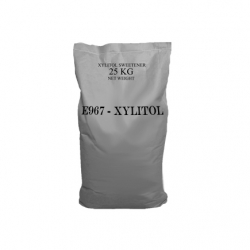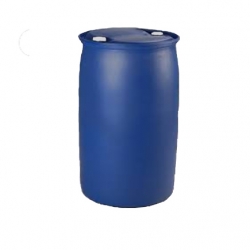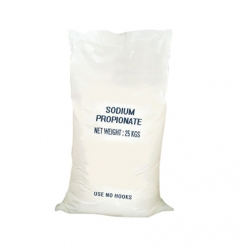No products in the cart.
Active filters
E330 - Citric Acid
Citric Acid is a tricarboxylic acid found in citrus fruits. Citric acid is used as an excipient in pharmaceutical preparations due to its antioxidant properties. It maintains stability of active ingredients and is used as a preservative. It is also used as an acidulant to control pH and acts as an anticoagulant by chelating calcium in blood.
E420 - Sorbitol
Sorbitol is a natural polyol with a sweetness level approximately half that of sucrose. Unlike monosaccharides, its structure does not contain any ketone or aldehyde functions. It is primarily used as a bulk sweetener to replace sucrose.
E950 - Acesulfame Potassium
Acésulfame K is 150-200 times sweeter than sugar. Acésulfame K is a very stable crystalline sweetener, with a chemical structure similar to saccharin. Acésulfame K is commonly used in combination with aspartame or other sweeteners because it has a synergistic effect to enhance and maintain the sweet taste of foods and beverages.
E951 - Aspartame
Aspartame is an artificial sweetener discovered in 1965. It is a dipeptide composed of two natural amino acids, L-aspartic acid, and L-phenylalanine, the latter in the form of a methyl ester.
E952 - Cyclamate
Cyclamate (or sodium cyclamate) is an artificial sweetener discovered in 1937 at the University of Illinois by a student named Michael Sveda.
Cyclamate is also known under the number E952.
E297 - FUMARIC ACID
Fumaric acid, or trans-butenedioic acid, is an unsaturated dicarboxylic acid with the chemical formula HOOC–CH=CH–COOH. It appears as a crystalline white powder that is odorless, combustible but weakly flammable, and slightly soluble in water.
E355 - Adipic Acid
Adipic Acid is naturally found in rhubarb and beets. It can also be produced synthetically for industrial use. It is a relatively mild acidifier, permitted in a very limited range of products.
GLUCANASES
Glucanases are enzymes that have the ability to break down glucans, which are polysaccharides composed of multiple glucose units linked together. These enzymes play a key role in breaking down the cell walls of plants, fungi, and bacteria.
E224 - Potassium Metabisulfite
Potassium metabisulfite, or potassium pyrosulfite, is a chemical compound with the formula K2S2O5. It appears as a crystalline white powder in the monoclinic system, soluble in water, with a faint odor of sulfur dioxide (SO2).
Hazelnut
Hazelnut trees are grown in various regions of the world, including Europe, Asia and North America. Hazelnuts are often used in cooking and baking for their delicate taste and crunchy texture.
Potassium Orthophosphate
Potassium orthophosphate is a potassium salt of orthophosphoric acid. It consists of potassium ions (K⁺) and phosphate ions (PO₄³⁻).
CHLORAMINE
Chloramine is a chemical compound composed of nitrogen and chlorine. There are several types of chloramines, but the most common is monochloramine, which has the chemical formula NH₂Cl. Chloramine is often used as a disinfectant in water treatment, especially in drinking water distribution systems.
E574 - GLUCONIC ACID
Gluconic acid is a widely distributed acid found in both animals and plants. It is most often incorporated into a larger molecule, as is the case in various gums.
E281-SODIUM PROPIONATE
Sodium propionate (E281) is a sodium salt of propionic acid, a carboxylic acid. It is used as a food additive in the food industry, primarily as a preservative agent to inhibit the growth of molds and yeasts, thereby extending the shelf life of food products.


